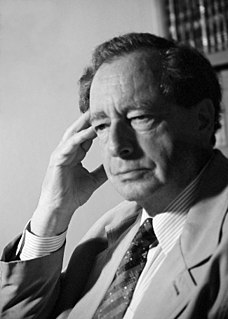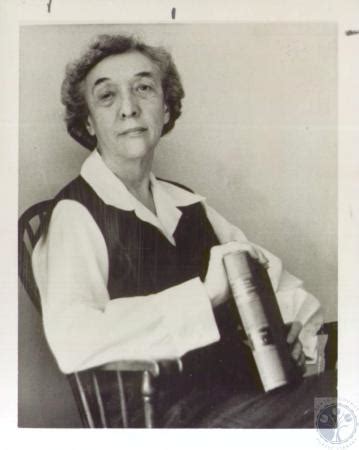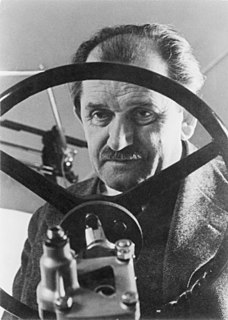A Quote by Mark Twain
The history of our race, and each individual’s experience, are sown thick with evidence that a truth is not hard to kill and that a lie told well is immortal.
Quote Topics
Related Quotes
We are told dogmatically that Evolution is an established fact; but we are never told who has established it, and by what means. We are told, often enough, that the doctrine is founded upon evidence, and that indeed this evidence is henceforward above all verification, as well as being immune from any subsequent contradiction by experience; but we are left entirely in the dark on the crucial question wherein, precisely, this evidence consists.
No individual and no generation has had enough personal experience to ignore the vast experience of the human race that is called history. Yet most of our schools and colleges today pay little attention to history. And many of our current policies repeat mistakes that were made, time and again, in the past with disastrous results.
William Shakespeare was the most remarkable storyteller that the world has ever known. Homer told of adventure and men at war, Sophocles and Tolstoy told of tragedies and of people in trouble. Terence and Mark Twain told cosmic stories, Dickens told melodramatic ones, Plutarch told histories and Hans Christian Andersen told fairy tales. But Shakespeare told every kind of story – comedy, tragedy, history, melodrama, adventure, love stories and fairy tales – and each of them so well that they have become immortal. In all the world of storytelling he has become the greatest name.
No matter how old I get, the race remains one of life's most rewarding experiences. My times become slower and slower, but the experience of the race is unchanged: each race a drama, each race a challenge, each race stretching me in one way or another, and each race telling me more about myself and others.
Savages have often been likened to children, and the comparison is not only correct but also highly instructive. Many naturalists consider that the early condition of the individual indicates that of the race,-that the best test of the affinities of a species are the stages through which it passes. So also it is in the case of man; the life of each individual is an epitome of the history of the race, and the gradual development of the child illustrates that of the species.
Women have been driven mad, “gaslighted”, for centuries by the refutation of our experience and our instincts in a culture which validates only male experience. The truth of our bodies and our minds has been mystified to us. We therefore have primary obligation to each other: not to undermine each other’s sense of reality for the sake of expediency; not to gaslight each other.
How our story has been divided up among the truth-telling professions! Religion, philosophy, history, poetry, compete with each other for our ears; and science competes with all together. And for each we have a different set of ears. But, though we hear much, what we are told is as nothing: none of it gives us ourselves, rather each story-kind steals us to make its reality of us.
Truth, acceptance of the truth, is a shattering experience. It shatters the binding shroud of culture trance. It rips apart smugness, arrogance, superiority, and self-importance. It requires acknowledgment of responsibility for the nature and quality of each of our own lives, our own inner lives as well as the life of the world. Truth, inwardly accepted, humbling truth, makes one vulnerable. You can't be right, self-righteous, and truthful at the same time.
Our future may lie beyond our vision, but it is not completely beyond our control. It is the shaping impulse of America that neither fate nor nature nor the irresistible tides of history, but the work of our own hands, matched to reason and principle, that will determine our destiny. There is pride in that, even arrogance, but there is also experience and truth. In any event, it is the only way we can live.
Life itself is a race, marked by a start, and a finish. It is what we learn during the race, and how we apply it, that determines whether our participation has had particular value. If we learn from each success, and each failure, and improve ourselves through this process, then at the end, we have fulfilled our potential and performed well.






































